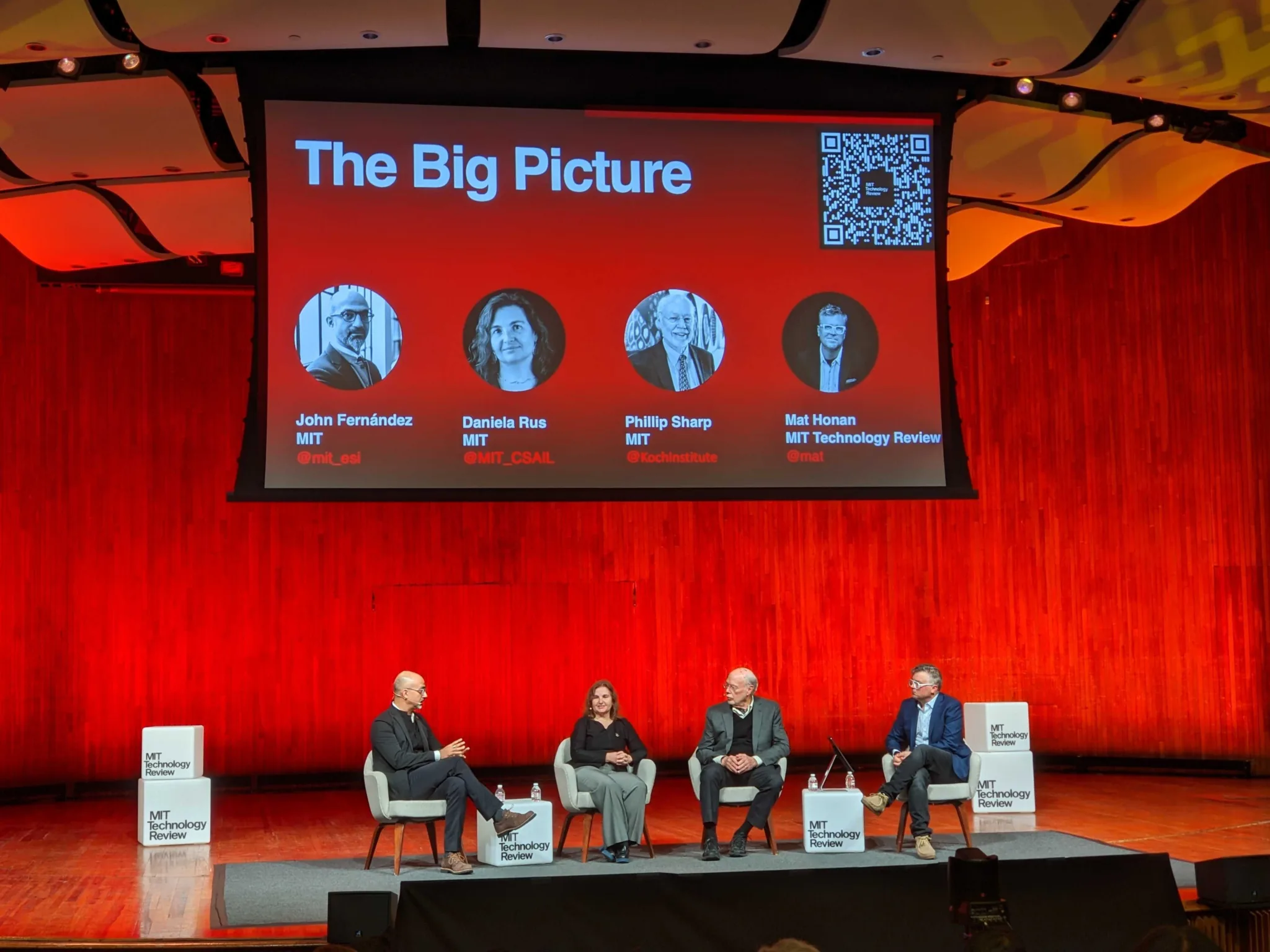The 2023 MIT EmTech conference showcased three important new technologies in climate tech, health care, and generative AI.
February 26, 2024
If there’s one thing that’s certain about technology, it’s that it is always moving forward.
From the internet and e-commerce to cloud computing and artificial intelligence to gene editing and synthetic biology, technology continually marches onward. In its wake, entire industries can be disrupted — and tens of billions of dollars in market share can be transferred amongst their participants.
So what are the technologies that investors need to be aware of today?
At MIT’s recent EmTech conference — which showcases emerging innovations — three experts in the fields of AI, cancer research, and climate change each revealed the one technology that they are currently the most excited about.

John Fernández, the director of MIT’s Environmental Solutions Initiative, is most excited about new technologies that are being used to solve climate change.
Specifically, low-cost renewable energy will attract $1.7 billion of investment this year. Investment in solar alone during 2023 overtook the total investment in all of oil production.
John also mentioned that satellites and sensors can now identify, in real-time, emissions of greenhouse gases. This could help industrial companies to self-diagnose where improvements need to be made (or regulators to determine where intervention needs to happen).
Another technology he believes is worth watching is green hydrogen — which is replacing liquid hydrocarbon fuels. Australia is a step ahead on this, with one of its mining companies named Fortescue already building an internal green hydrogen infrastructure. Green hydrogen has 3x the energy density of diesel, making it an environmentally and economically attractive option as a fuel or a process feedstock.
Daniela Rus, the director of MIT’s CSAIL Labs, is most excited about generative AI now being ‘in everyone’s pockets’ and being trained on a diversity of types of data.
She believes that generative AI has three goals in mind:
Daniela explains that GenAI is very good at lower-level data gathering and processing — which should make it a perfect tool to support human capabilities and free up employees’ time. Orthopedists often spend 75% of their time doing paperwork, whereas AI can unload much of that administrative burden. She also thinks the improvements in efficiency and productivity will allow many jobs to transition to a four-day work week.
Phillip Sharp, MIT’s Professor Emeritus for the Koch Institute for Integrative Cancer Research, is most excited about DeepMind’s Alphafold (which is a wholly-owned subsidiary of Alphabet (Nasdaq: GOOGL)).
Alphafold uses generative AI to fold proteins in native, active structures that are de novo of the sequence of the protein. Phil mentions that “we’ve spent the past 50 years building the structures of proteins in simulations. This is accelerating the development in this space, and GenAI will greatly accelerate our understanding of biological systems.”
He also points out that 19% of America’s GDP is dedicated to the costs of health care, and that AI is ‘cheap’ when compared to the traditional methods. The biggest challenge is in implementation — to advise, to diagnose, and to deliver. Data privacy is also still a huge hurdle, and the energy intensity for AI computing remains a challenge as well.
These three opinions are just the tip of the iceberg. Here is a link to see 7investing’s complete review of the entire 2023 EmTech Conference.
If you’re not yet a subscriber, you can get started with a test-drive of 7investing for just $1 right here.

Already a 7investing member? Log in here.